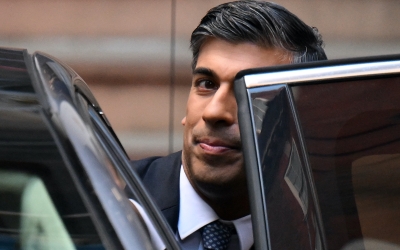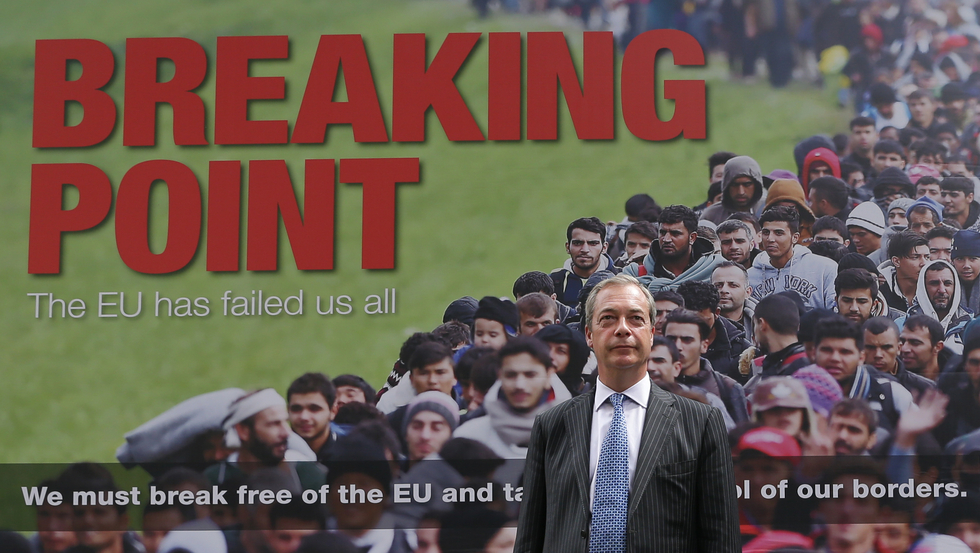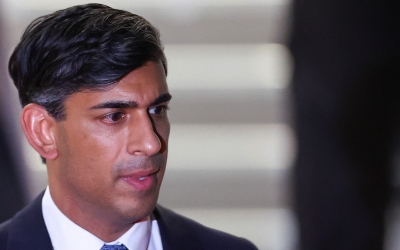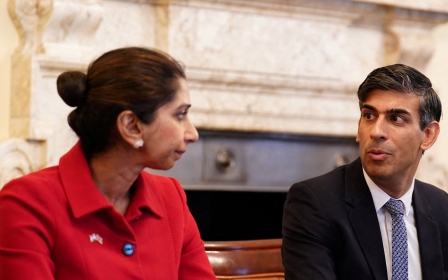UK elections 2024: Tory Britain is about to fall. But what follows could be far worse
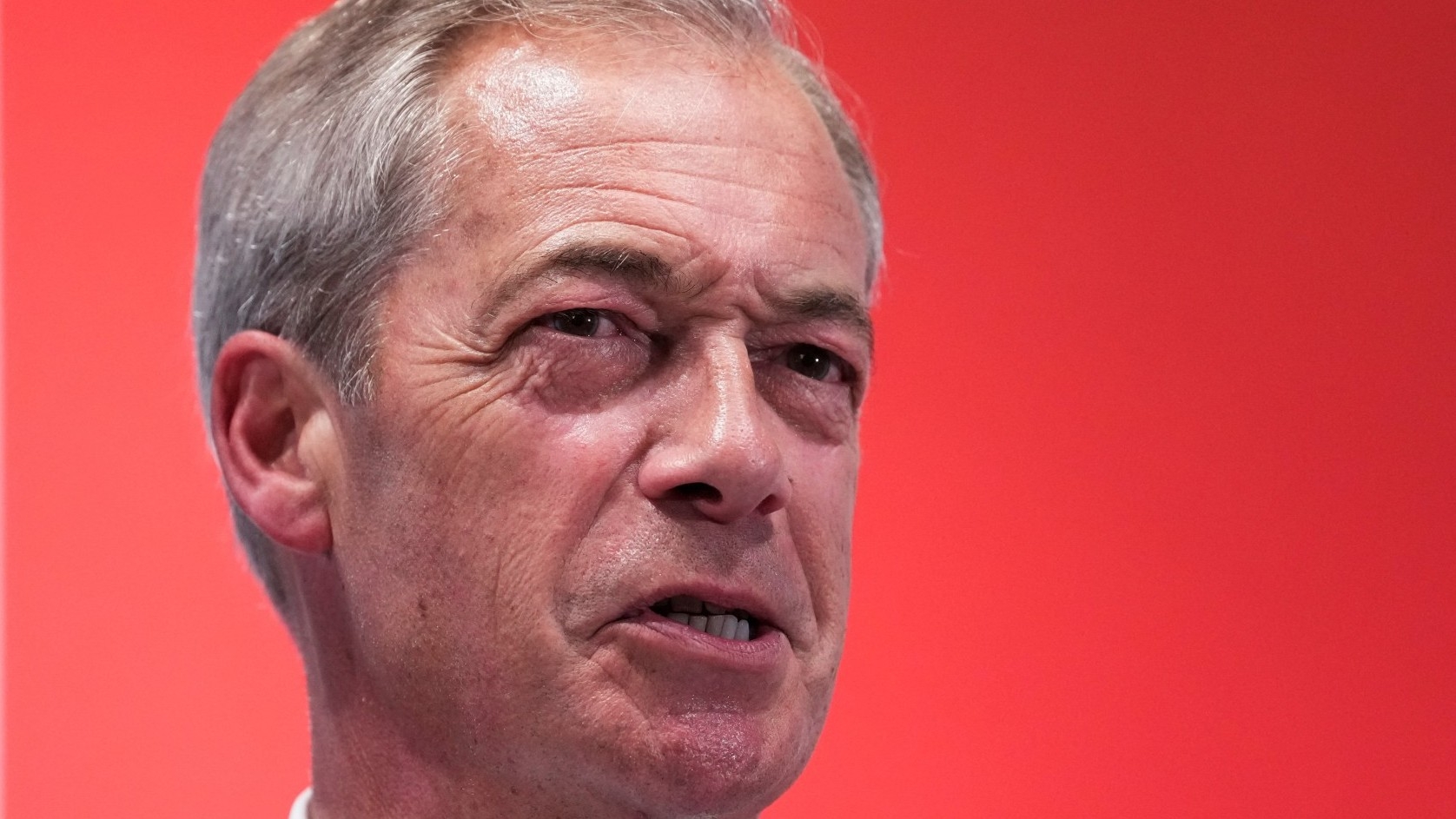
A shaken President Emmanuel Macron calls emergency elections in France. A boost for Giorgia Meloni in Italy. Alternative fur Deutschland humiliates Olaf Scholz in Germany.
Sunday night was another excellent result for the hard right in Europe, with its bitter hostility to Muslims and vow to block immigrants.
At first sight, Britain - not for the first time - appears to be the exception.
When Britons go to the polls on 4 July, it is certain that Keir Starmer’s Labour Party will surge to victory, with Rishi Sunak’s Conservative Party facing the biggest defeat in its 200-year history.
But we should not be deceived.
New MEE newsletter: Jerusalem Dispatch
Sign up to get the latest insights and analysis on Israel-Palestine, alongside Turkey Unpacked and other MEE newsletters
It is perfectly true that Labour will win the election. But British politics is being driven by the identical far-right forces that menace continental Europe.
Those of us who love and value liberal democracy should not welcome the fall of the Tory party.
Because what replaces it may be far worse.
'Unite the right'
One of the historical roles of the Conservative Party has been to act as a prophylactic against fascist and far-right forces which, history shows us, have always lurked not far under under the surface in British society.
It is no longer playing that role. The Conservative Party is falling into the hands of the far right before our eyes.
Look at the splash headline in Monday's Times: “Tories must embrace Farage, says Braverman.”
Suella Braverman, who as home secretary called pro-Palestinian marchers "hate mobs", is one of the leading contenders to succeed a broken Sunak after next month’s election.
She will be advocating for a merger between the Conservative Party and Nigel Farage’s Reform on the basis that now is the moment to "unite the right".
It doesn’t take much brainpower to work out why Braverman’s argument is so dangerous and wrong.
Farage is the most prominent modern disciple of Enoch Powell, the racist Tory politician who in 1968 notoriously took a stand against immigration with the bleak warning: “As I look ahead, I am filled with foreboding; like the Roman, I seem to see 'the River Tiber foaming with much blood'.”
Farage has acknowledged Powell as his inspiration.
“While his language may seem out of date now,” he is on record as saying, “the principles remain good and true.”
Farage added: “I would never say that Powell was racist in any way at all."
'Racist, hate-filled rhetoric'
After Powell made his infamous speech, Edward Heath, then leader of the Tory opposition to Harold Wilson’s Labour government, sacked him from the shadow cabinet and ended his career as a mainstream politician. Not long afterwards, Powell quit the Tories.
Heath drove Powell, and with him the far right and its rancid racism, out of politics.
Now Braverman - and many others - want to let Powell’s disciple back in.
It is not just that Farage admires Powell. He uses the same language.
In a recent interview with Trevor Phillips on Sky TV, he said: “We have a growing number of young people in this country who do not subscribe to British values, [who] in fact loathe much of what we stand for.”
When Phillips asked if he was talking about Muslims, Farage responded: “We are.”
He went on: “I can take you to streets in Oldham where literally no one speaks English.”
Farage fits naturally into the rancid politics of the far-right movements making ground across Europe and in the US
Farage provided no evidence that such a street exists in Oldham - and his language echoed a fabrication by Powell in his “Rivers of Blood” speech.
And he conveniently forgot to mention the polls, which show that Muslims are more loyal to Britain than anyone else.
Powell had spoken of a white constituent of his who had allegedly complained to him about being the only white person on his street.
But when journalists tried to find that constituent, they failed.
Likewise, locals described Farage’s claim about the use of English on Oldham streets as “rubbish”. One told the Manchester Evening News: “I’m a grandmother, my grandkids don’t know my language, they only speak English."
Zara Mohammed, the secretary general of the Muslim Council of Britain, said Farage was expressing “horribly Islamophobic, racist and hate-filled rhetoric of misinformation”.
It’s impossible to disagree. Farage, a close ally of Donald Trump, who has supported Marine Le Pen in France and spoken at an AfD rally in Germany, fits naturally into the rancid politics of the far-right movements making ground across Europe and in the United States.
I find it unbelievable that such a high-profile politician should have been permitted to distort the facts and to use language clearly designed to stir discord and hatred against Muslims as Farage has over the last few weeks.
If he had used the same comments about Jews, the sky would have fallen on his head - and rightly so.
Sulphurous politics
It is shocking that in 2024, a British politician can make comments as bad if not worse as those used by Powell in 1968 without a murmur.
There’s been no condemnation of Farage’s repulsive language from Sunak. Nor from Starmer, who stands to gain electorally if Farage, as seems likely, splits the Tory vote.
I have also examined closely the British Conservative-supporting press for its response to last week’s news that Farage is returning to frontline British politics as leader of Reform.
The papers all treated it as a bombshell political event, with the commentary focused on the likely effect on the Tory vote.
Not one of the newspapers I studied contained even a hint of Farage’s vicious attacks on Muslims.
The Telegraph - which is showing signs of being ready to flirt politically with Farage - had a huge front-page photograph of Farage with the headline “I’m back to lead the revolt”. The Times headline focused on the electoral blow to Sunak.
The Spectator magazine - referred to as the Tory Party "bible" - published four separate articles about Farage, by Rod Liddle, Douglas Murray, Charles Moore and Annunziata Rees-Mogg.
Not one of them so much as mentioned Farage’s record of bigotry, Islamophobia and support for racists, let alone felt that it was a major problem which counted against him.
This is immensely consequential. The Conservative Party will be smashed electorally at the next general election.
But we can expect a fierce battle for the title deeds of the party, which after all has a famous name and has governed Britain for much of the last two centuries.
On one side of the struggle, there is a small band of traditional Conservatives from the party which threw out Enoch Powell 56 years ago.
On the other side are those pressing for a party which, while retaining the Conservative name, actually embraces the politics of another, darker right-wing movement.
A Conservatism aligned with Le Pen and the AFD. A party that wants to bring back the sulphurous politics of Enoch Powell.
The views expressed in this article belong to the author and do not necessarily reflect the editorial policy of Middle East Eye.
Middle East Eye delivers independent and unrivalled coverage and analysis of the Middle East, North Africa and beyond. To learn more about republishing this content and the associated fees, please fill out this form. More about MEE can be found here.



